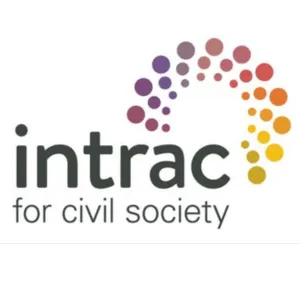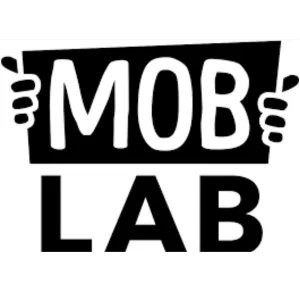This material was originally created and published by INTRAC and is reprinted here with permission. It has been edited by ForumCiv. This material has not been reviewed by INTRAC.
What is advocacy?
Advocacy are actions intended to influence selected people, governments, private companies or other institutions in order to achieve a desired policy, practice, social, or political change that will benefit particular groups. The goal can for example be to:
- To defend communities and programmes from adverse policy changes
- To address the causes of poverty and not just the symptoms
- To ensure the responsibilities of governments to citizens are met and rights are respected
- To strengthen democracy by encouraging the engagement of citizens and civil society organisations in the policy-making process
Advocacy covers a wide range of activities, such as:
- Direct engagement with powerful actors whom you are seeking to influence.
- Short briefings or policy reports aimed at these powerful actors.
- Public campaigning.
- Using the media and social media to influence powerful actors.
- Litigation. When policymakers are not complying with their own laws.
Different approaches of advocacy
An outsider approach can be defined as advocacy that occurs outside of the corridors of power. Examples of this includes public campaigning and mobilisation of the public/rights holders, protests and media work.
An advantage with an outsider approach is that duty bearers may need to bend to public pressure or comply because of public exposure of their wrong doings.
A disadvantage with this approach is that it may alienate duty bearers and may lead to exclusion from the negotiation table
An insider approach can be defined as private influencing that occurs behind closed doors. This tends to involve constructive dialogue and relationship-building with duty bearers.
An advantage with an insider approach is that one may be able to increase influence by building constructive relationships over time. One may become a trusted source of advice.
A disadvantage with this approach is that there is a risk for co-optation by duty bearers. It is an important consideration for civil society which wishes to stay independent and able to direct critique.
The approach you choose to take depends on your analysis of the context for the advocacy initiative; for instance, who has power, what is likely to sway them or appeal to them, the political culture, how political change comes about in this context, and which risks you are willing to take.
Different types of advocacy
Advocacy frequently involves direct and private face-to-face meetings with individuals whom we are seeking to influence – especially if you choose to take a more insider advocacy approach. Often these individuals will be politicians but at other times we will only get to meet with the politicians' officials/civil servants.
Using research and policy for advocacy
In order to exert influence on duty bearers, it is helpful to have robust and well-researched evidence that will support and substantiate the case for change and that will demonstrate that:
- Change is needed.
- The solutions you are proposing are likely to solve the problem.
CSOs frequently call on duty bearers to make evidence-based policy decisions – for instance decisions that are based on the evidence rather than political ideologies – so it is important that we ourselves base recommendations and calls for specific changes on evidence.
Public campaigning and online campaigning
Public campaigning is advocacy undertaken in public, which makes it an outsider approach. Public campaigning usually involves building a relationship with ordinary citizens and using their actions to put pressure on duty bearers from the outside. Examples of public campaign actions include:
- Online petitions, e-mail messages or printed postcards which campaigners sign and send to decision-makers.
- Viral campaigns using hashtags on social media to build support for a campaign.
- Public demonstrations, marches or vigils.
- Large public meetings - for instance in local town halls.
- Mass lobbies of parliament.
- Photo stunts in public places designed to attract media and public attention.
- Wearing campaign badges, bracelets or T-shirts to raise the profile of the campaign and make its supporters feel involved and part of it.
Using media for advocacy
Getting an issue into the media can be an effective means of reaching large numbers of people and far more than an organization can reach directly. It can be a useful tool for exposing a serious wrong, raising public awareness of an issue and generating public pressure on policymakers.
Politicians tend to be sensitive towards how they are portrayed in the media – given that the consumers of media outlets are invariably their voters – and likewise private companies can be extremely sensitive to any media coverage that might adversely affect their business.
Advocacy in coalitions
Coalitions are helpful when advocating alone is not an option due to a lack of resources or influence, or because it is too risky for individual organizations to advocate on their own. Some of the benefits with doing advocacy in coalitions are:
- A larger voice and therefore a bigger impact on the political process.
- More groups backing a single message gives the message more credibility and legitimacy in the eyes of duty bearers.
- More groups may also give individual organizations more protection from political backlashes or attacks – safety in numbers.
- Can reach a wider variety of duty bearers, media outlets because of the greater capacity and resources that a coalition can command.
- Can mobilize larger numbers of people for public campaigning.
- Can involve organizations with different and complementary skills, experience, expertise, and constituencies. Coalitions can offer opportunities for surprising alliances.
- Can exert influence at different levels and to a wider range of actors, depending on the skills and constituencies of the different member organizations. For instance, lobbying organizations can influence policymakers, youth organizations can influence young people and so on.
- Coordinating activities through a coalition means less duplication of efforts.
- Cooperation allows for division of labour and sharing of resources.
How to get started
- Analyse and research the problem you want to address so that you are clear about the root causes of the problem and the blockages to change.
- Have a vision of the long-term change you want to see - the long-term goal. It is not something which your advocacy alone will achieve. But it is the ultimate reason for why you are doing the advocacy.
- Analyse all of the changes needed to secure the long-term goal and linkages between these changes.
- Select which of these change(s) you will seek to secure through advocacy. This is your advocacy goal.
- Analyse the external context in which you will advocate – ie people, power, policies, politics. Analyse upcoming opportunities and threats too.
- Analyse the internal context within your organisation or coalition – eg. advocacy capacity, expertise on the issue etc.
- Identify your overall approach and tactics (based on your analysis of the internal and external context).
- Identify the sequence of actions and outcomes you will seek on the way to achieving the advocacy goal(s) – essentially your advocacy roadmap. Set indicators to help you measure your progress in securing the outcomes.
- Develop your key advocacy messages and your `asks’ of those you are seeking to influence – eg. policy recommendations.
- Monitor (regularly) your advocacy strategy. You may need to amend the strategy as the context (inevitably) changes and depending on the outcomes you are observing. Remember advocacy is about influence – not control! For reasons beyond your control, your strategy will probably have to adapted.
Challenges of doing advocacy
- Advocacy is about influence rather than control. You may succeed in influencing and persuading powerful actors to take action and make change happen – or you may not. You cannot totally control what they do.
- Changing policies or laws can take a long time and the process may be very unpredictable (though not all advocacy initiatives seek policy or legal changes).
- Advocacy strategies are very context-specific and time-specific: what worked in one particular time or place may not work in any other time or place.
- Advocacy will require you and your organisation to engage with politicians and political processes. Some of your supporters and those you seek to influence may regard your organisation as too `political’. This may affect your reputation and your funding.
- In some contexts, engaging in advocacy may expose your organisation and staff to harassment because those you seek to influence regard you as a threat to their power and their interests.
- Multiple actors and factors may have been involved in securing the change you seek. This makes it hard to attribute change to your advocacy.
Learn more about doing advocacy

Advocacy: A Toolkit
This toolkit is a guide to advocacy intended specifically for small NGOs.

MoBLab Resources
MobLab offers tons of inspiration and facts on how you boost your advocacy work.

Beautiful Trouble toolbox
Explore the toolbox that has helped grassroots movements to become more creative and effective.



